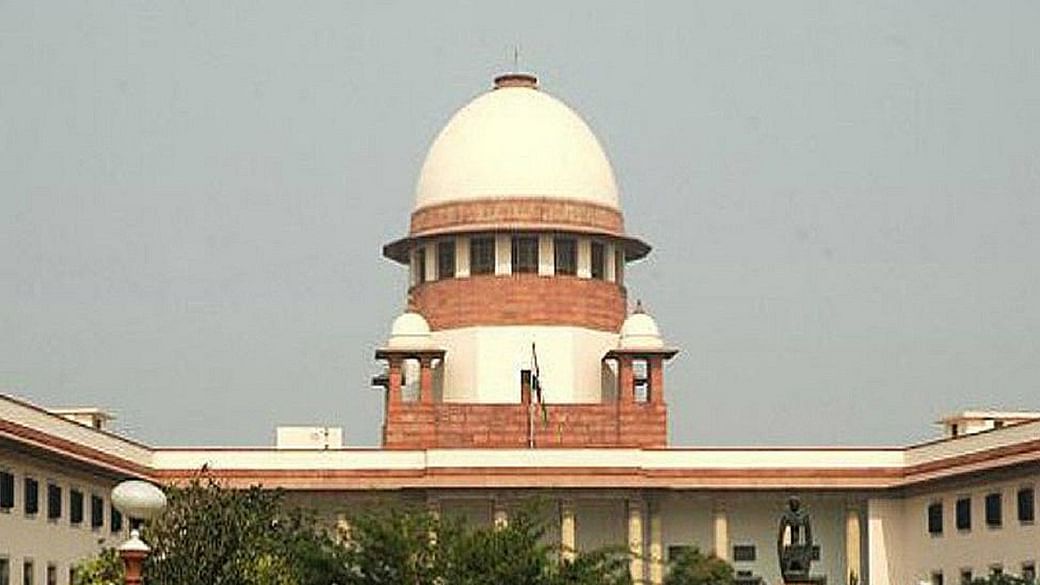NEW DELHI, Jan 11:
The Centre on Monday justified in the Supreme Court the 2017 rules under the Prevention of Cruelty to Animals (PCA) Act, 1960, and said that there is difference between “seizure” and “confiscation” of animals and a plea can be filed in the concerned court seeking release of seized animals.
The top court said that confiscation of animals can only happen after the conviction of a person under the PCA Act and it cannot be done during the pendency of trial.
A bench of Chief Justice SA Bobde and Justices AS Bopanna and V Ramasubramanian said that it is talking about the situation where the animals are taken away from the protective custody of the owners even during the proceedings. “There is a difference between sale and seizure. When sale is there then income is generated. We are only concerned with confiscation of animals from the rightful owner and thus kept locked up and injured,” the bench said.
During the hearing, Solicitor General Tushar Mehta, appearing for Centre said that they have filed a detailed reply to the petition and so far as seizure is concerned a plea can be filed in concerned court for release of seized animals.
He said that the petitioner NGO has confused between “seizure” and “confiscation” and an animal subjected to cruelty cannot be allowed to be maintained by that person.
The bench told Mehta, “What are you going to do about the rules which are in dissonance with the sections of the Act”.
It said, “The animals are the source of livelihood for people. The section is clear that only after conviction the animals can be taken away. The rules permit to take away the animals even before conviction”.
The bench said that it will consider the reply of the Centre and take up the matter for further hearing next week.
Senior advocates VV Giri and Siddharth Luthra, appearing for intervenors said that the Act itself provides for seizure of animals even before conviction of person under the law.
The top court allowed all the intervention applications and posted the matter for further hearing in two weeks.
The Centre in its reply affidavit said that, “the petitioner has conflated the meanings of the term “seizure” and “confiscation” and added that while seizure is temporary in nature and merely takes possession of property, confiscation amounts to transfer of ownership in the property and is supposed to be carried out only after final adjudication of the rights of the parties in a given case.
“It is submitted that however, the power of seizure, as clearly provided in the Act, can be exercised in the interim subject to the final decision taken by the statutory machinery. It is submitted that the said power of seizure, pending adjudication expressly provided for under the Act, is not under challenge,” the Centre said.
The Centre further said that during the pendency of litigation and in pursuance of the provisions provided in section 35 of the Act, for treatment and care of such rescued animals local magistrate by its discretion on interim custody sometimes handover the cattle/animal to some local ‘Pinjarapoles or Gaushala or animal shelter homes, when the accused owners of cattle are not fit to get interim custody of the cattle as per the law.
“It is most respectfully submitted that the arguments raised regarding the right of livelihood of the traders are also not sustainable as there is no fundamental right to a business illegally, as the animal traders are required to their business as per the law of the land and the rules laid down to the said business of carrying animals from one place to another under the Transport of Animal Rules, 1978”, it said.
On January 4, the top court had asked the Centre to either withdraw or amend rules notified in 2017 for confiscating animals of traders and transporters during the pendency of trial in cases under the Prevention of Cruelty to Animals Act, saying they are contrary to the law.
The Prevention of Cruelty to Animals (Care and Maintenance of Case Property Animals) Rules, 2017 framed under the Prevention of Cruelty to Animals Act, 1960, were notified on May 23, 2017.
On July 2, 2019, the top court had sought response from the Centre on a plea of Buffalo Traders Welfare Association challenging the constitutional validity of the rules of 2017.
The traders have claimed that they were being forcibly deprived of their cattle which is sent to ‘Gaushalas’, and the seizure of their livestock that is a means of livelihood for many families was being done under the 2017 rules.
“It is pertinent to mention that these frequent lootings are also threatening the rule of law and generally emboldening groups of persons to take the law into their own hands. Moreover, these incidents are acting as triggers for communal polarisation of society, and if not halted effectively and immediately, will have disastrous consequences on the social fabric of the country,” the plea of the association said.
The 2017 rules allow a magistrate to forfeit the cattle of an owner facing trial under the Act and the animals are later sent to infirmaries, ‘gaushalas’ and ‘pinjarapole’ and offered for adoption. (PTI)
Trending Now
E-Paper


